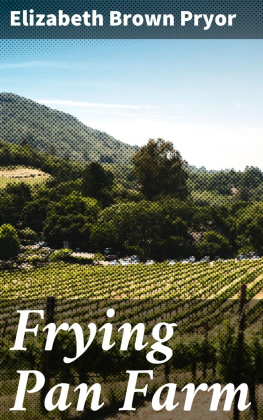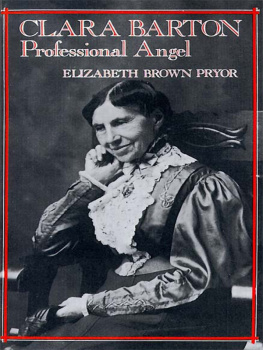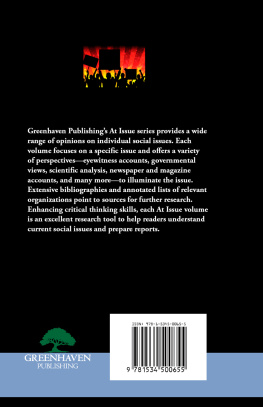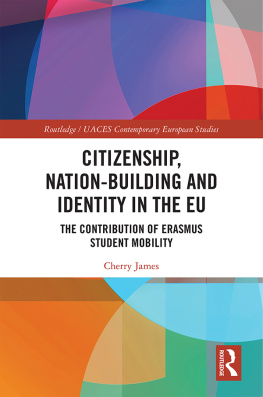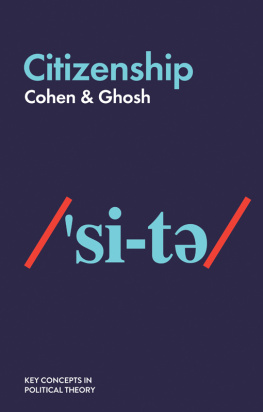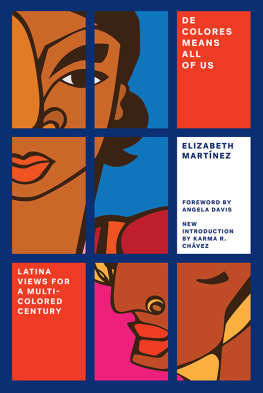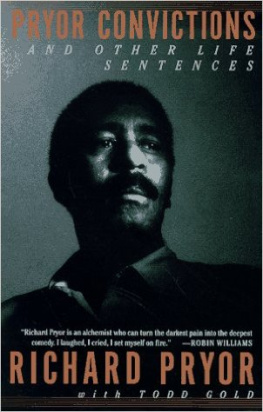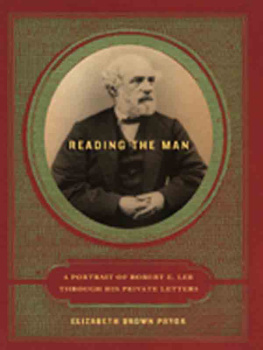This book was published with the assistance of the Authors Fund of the University of North Carolina Press and a Smith College faculty grant.
2016 Elizabeth Stordeur Pryor
All rights reserved
Set in Espinosa Nova by Westchester Publishing Services
Manufactured in the United States of America
The University of North Carolina Press has been a member of the Green Press Initiative since 2003.
Library of Congress Cataloging-in-Publication Data
Names: Pryor, Elizabeth Stordeur, author.
Title: Colored travelers : mobility and the fight for citizenship before the Civil War / Elizabeth Stordeur Pryor.
Other titles: John Hope Franklin series in African American history and culture.
Description: Chapel Hill : University of North Carolina Press, [2016] | Series: The John Hope Franklin series in African American history and culture | Includes bibliographical references and index.
Identifiers: LCCN 2016019962 | ISBN 9781469628578 (cloth : alk. paper) | ISBN 9781469628585 (ebook)
Subjects: LCSH : African AmericansTravelUnited States. | African AmericansCivil rightsHistory19th century. | Freedom of movementUnited StatesHistory19th century. | Travel restrictionsUnited StatesHistory19th century. | United StatesSocial conditions19th century.
Classification: LCC E 185.18 . P 75 2016 | DDC 323.1196/07309034dc23 LC record available at https://lccn.loc.gov/2016019962
Jacket illustration: J. Dupreys (Duprys), The Stranger , ca. 18401850. Oil on canvas, 18 25 in. (46.4 63.5 cm). The Menil Collection, Houston.
Chapter 1 was previously published in a different form in Journal of the Early Republic and is used here with permission.
Acknowledgments
I was in a graduate seminar at the University of California Santa Barbara (UCSB) when the ideas for this book began to coalesce. I offer Jane DeHart unending gratitude for wooing me into the class and, really, the UCSB history department, and then following through as a perfect first mentor. After I presented a paper on Frederick Douglasss 1845 voyage to England, Jane put me in touch with her colleague Patricia Cline Cohen, insisting that we would bond over our mutual interest in travel. And bond we did. Pat became my advisor, and her nuts-and-bolts sensibility inspired me to think of travel itself as a point of departure. Pat, I have since learned, is an intellectual mother to a host of students and junior colleagues, and I am more than a little bit lucky to be one of them. From the time I became her student until now, Pat has read in record time everything Ive ever sent her and has offered astute and probing comments. A mere thank you seems inadequate, and although Pat is not a fan of gushing, sometimes it needs to be done. It is safe to say that without her deep commitment to me and to this project, I would not now be writing the acknowledgments to my first book.
I am grateful to so many intellectual brothers and sisters and aunts and uncles who have remained steadfast cheerleaders throughout this process. I shower light, love, and thanks over them all. They include Leila Rupp and Eileen Boris, who pushed me to think of gender and citizenship in more sophisticated ways. Jane DeHart remains a mentor. She not only introduced the project to the folks at UNC Press but also, after a four-hour post-Berks dinner for two, became mishpucha. April Haynes, a scholar who can connect the dots like no other, cracked open my thinking on racial passing but has also passed glorious hours with me gossiping about folks such as Douglass and William Wells Brown as if we had partied with them the night before. Our paths have crossed many times, and Im always the better for it. During my Cornell days, Leslie Alexander took me under her wing the first day of graduate school and cultivated my passion for history by showing how it was fun, funny, and also devastating. Our many conversations and her important book inspire my thinking here. Others who in graduate school guided and/or pushed me onward include the late Michael Kammen, Mary Beth Norton, Lois Brown, John Majewski, Nelson Lichtenstein, Erica Rappaport, Michelle Scott, Jessica Chapman, Vanessa Crispin Peralta, and Kathryn Wollan.
Three colleagues have read nearly every page of this manuscript and managed to reinvigorate me along the way. I am so grateful to Barbara Krauthamer, Ted Melillo, and Dawn Petersoneach more well read than the next. Together we spent hours at my dining-room table talking race and U.S. history, laughing out loud, and, sometimes, even tearing up a little bit when the historical insights got that deep. Dawn is likely the only person who has read every single word of multiple drafts, and her brilliance never fails to awe. By sharing with me her generous intellect, she has also become one of my very closest friends. I am privileged to have connected with so many people whose beautiful readings of history continue to stun me. They include Ed Baptist, Emily Bernard, Scot Brown, the late Stephanie Camp, Corey Capers, Brian Connolly, Jim Downs, Douglas Egerton, Sharla Fett, Bridget Fielder, Aisha Finch, Tanisha Ford, Leigh Fought, Jen Fronc, Thavolia Glymph, Leslie Harris, Graham Hodges, Vanessa Holden, Jessica Johnson, Martha Jones, Robin D. G. Kelley, Andrea King, Jen Manion, Joanne Pope Melish, Jessica Millward, Jennifer Morgan, Sowand Mustakeem, Richard Newman, Chantal Norrgard, Tamika Nunley, Deirdre Cooper Owens, Alyssa Mt. Pleasant, Khary Polk, Vijay Prashad, Stacey Robertson, Seth Rockman (and his invitation to share my work at Brown Universitys 19th Century US History Workshop), David Roediger, Patricia Schechter, Manisha Sinha, Stephanie Smallwood, Ula Taylor, and Heather Andrea Williams. At different moments, their work and their friendship have kept foremost in my mind not only the fact that black lives matter but that they always have.
Teaching at Smith College has likewise introduced me to a world of rich intellectual bounty. From students to colleagues, I find myself immersed in a community of intellectual rigor, curiosity, humility, playfulness, and commitment. First, to my students, I must say that when I met you I was terrified, and I should have been. I could write a book about the things youve taught me in the last seven years. You have helped me create a pedagogical approach for bringing racist language (in its historical context) into the classroom. Our wild and profound discussions have taught me that the word nigger not only represents a national and historic trauma but for nearly all of us, no matter our race, a personal one. Our conversations planted the seeds for the ideas in the first chapter of this book. Its no surprise that the rare genius of Smith students is mirrored in their teachers, many of whom, as friends and mentors, have read drafts of this project and/or fostered my teaching. I offer my warmest gratitude to Jeff Ahlman, Marnie Anderson, Lisa Armstrong, Payal Banerjee, Ernest Benz, Joshua Birk, Darcy Buerkle, Ginetta Candelario, Floyd Cheung, Dawn Fulton, Paula Giddings, Sergey Glebov, Helen and Dan Horowitz, Daphne Lamothe, Richard Lim, Neal Salisbury, Nadya Sbaiti, Kevin Quashie, Danielle Ramdath, Shani Roper, Louis Wilson, and Ann Zulawski. A special shout out goes to Jennifer Guglielmo, who has not only read chapters but also spent countless hours debriefing with me about the processes of teaching, writing, professional development, and life. Jennifer is one of those unusual people who is unafraid to acknowledge that at the heart of teaching and research lies the heart.



